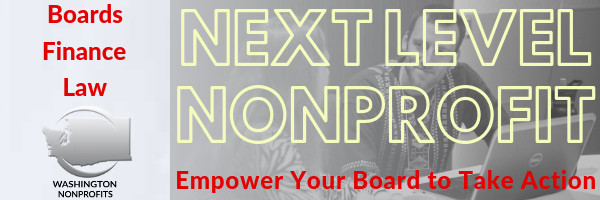
Second, watch this video
You work hard to raise money. So let’s talk about two communications pieces to make sure you can keep what you raise and bring board members along with you. Watch this video about COMMUNICATION. It gives you two ideas to consider related to fundraising and communications.
Third, take Two Steps Forward
We invite you to take two steps forward from where you are now. Here are two topics to explore and bring back to your organization.
- Understand liquor law as it relates to nonprofit fundraising events. Even though your fundraising events are designed to support a great cause, state law related to liquor, cannabis, and gambling still apply. If you are holding a fundraising event, take time to understand the law and how you can best follow it.
- Implement an anti-discrimination policy and learn more about Diversity, Equity, and Inclusion within nonprofits. As the National Council of Nonprofits article points out, nonprofits face both a moral imperative to take action around equity and a practical call for inclusion. Organizations that limit discrimination and champion diverse perspectives make better decisions.
Fourth, share what you’ve learned
Find the entire Finance Unlocked for Nonprofits curriculum, videos, kit, and key documents here. Invite fellow board members to watch a video.
Have questions? Connect with your peers in the nonprofit sector through the Next Level Nonprofit LinkedIn group.

